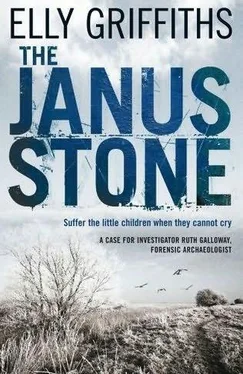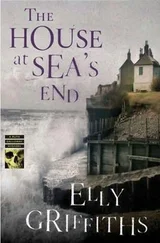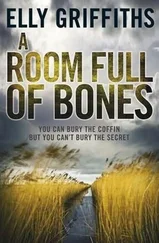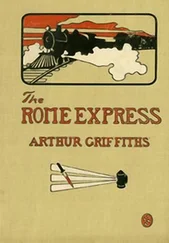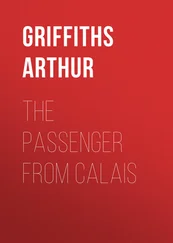‘Are you all right?’
‘Fine.’ But he is breathing heavily. He must be in his late seventies or even eighties, Ruth thinks.
Ruth points to the pile of earth in front of her. ‘The body was buried directly under the doorstep. We’ve removed that. We tried to leave everything else undisturbed.’ She looks at Hennessey’s face. ‘We’re very careful,’ she finds herself explaining, ‘very respectful.’
Hennessey’s lips move silently for a second. Is he praying? Then he says, ‘Buried under the doorstep, you say?’
‘Yes.’ She doesn’t mention the foetal position.
‘And the skull was in the well?’
‘That’s right.’
Hennessey is silent for a few minutes and then he says, ‘Would you mind if I said a prayer?’
‘Go ahead.’ Ruth backs away. She finds public prayer embarrassing at the best of times but to be trapped in a trench with someone chanting in Latin and waving incense – it’s her worst nightmare.
However Hennessey’s prayer turns out to be mercifully short, the words muttered and not (as far as Ruth can tell) in Latin. At the end he takes a small bottle from his pocket and sprinkles water onto the earth.
‘Holy water,’ he explains. He looks at Ruth’s face. ‘You’re not a Catholic?’ He sounds amused.
‘No. My parents are Christians but I’m not… anything.’
‘Oh, you’re something, Ruth Galloway,’ says Father Hennessey. He looks at her for a second and Ruth has the strangest feeling that he knows her very well, almost better than she knows herself. But then the moment passes and Hennessey says briskly, ‘I’m parched. Do you fancy a cup of coffee?’
Nelson is leaving the museum when he gets a call from Judy.
‘I’ve got Annabelle Spens’ death certificate, boss.’
‘Good. Anything interesting?’
He hears her rustling paper and he thinks of his father’s death certificate, those few stilted words encompassing all the pain and grief. His father’s cause of death had been ‘myocardial infarction’. At the time he had no idea what that meant.
‘Date and place of death,’ reads Judy. ‘24 May 1952, Woolmarket House, Woolmarket Street, Norwich. Cause of death: Scarlet fever. Children don’t get that any more do they?’
‘They get it,’ says Nelson, ‘they just don’t die of it.’ He stops as a party of schoolchildren stream past him, holding photocopied worksheets and trying to trip each other up.
‘She died at home,’ Judy is saying. ‘How come she wasn’t in hospital?’
‘I don’t know. Perhaps it was more usual to nurse children at home in those days.’
‘But they had money, they could afford health care. This was before the NHS, wasn’t it?’
‘Early days of the NHS.’
The children push through the glass doors of the museum. He can hear their teacher telling them that they’re going to be divided into groups. ‘You’re in my group, Ryan.’ That’s your day ruined, Ryan, you poor sod.
‘What about the certificate of interment?’ he asks.
‘Tanya’s getting it,’ says Judy, sounding slightly pissed off. ‘Boss, do you really think that Annabelle was buried in the house and not in a grave?’
‘I don’t know,’ says Nelson. ‘But there’s something odd about that house. There’s something odd about this whole case.’
He had been to see the curator, to ask how the foetus model could have escaped from the museum and ended up at Ruth’s feet in the trench in Swaffham. The curator had been perfectly pleasant but unable to offer any answers. The stages of development model had been taken down from display a few weeks ago (they had had some complaints from parents) and the components placed in the store room. Who had access? Well, any of the museum staff. The more valuable exhibits were kept in a safe but who would steal a plastic model of a baby? Who indeed?
Nelson stands on the steps, looking about over the Norwich rooftops and wondering what his next move should be. Should he go back and question Edward Spens again? He is sure that the man is holding something back. Should he get back to the station and bully Tanya about the interment certificate? They need to get hold of the dental records too. He sighs. It’s a hot, muggy day and more than anything else he fancies diving into a pub for a cold beer. That’s what Clough would do, he’s sure of it.
‘Hi, Detective Chief Inspector.’
Nelson whirls round. A young woman with lurid purple hair is smiling cheekily up at him. Who is she? One of his daughters’ friends? A trendy acquaintance of Michelle’s?
‘I’m Trace,’ says the apparition. ‘From the dig.’
Oh yes. The skinny girl who was on the site the first day. The one they all think Cloughie fancies. Rather him than me, thinks Nelson, looking at the metalwork gleaming on Trace’s ears and lip. But she seems friendly enough.
‘What are you doing here?’ she asks.
‘Routine enquiries,’ he answers. ‘What about you?’
‘I work here, Mondays and Fridays. There’s not enough field archaeology to keep me busy all year round so I do some curatorial work, processing finds and that.’
Nelson has no idea what ‘processing finds’ means but he knows one thing: Trace could be an important contact within the museum. She might well know if anyone has been waltzing off with the exhibits. ‘Fancy a drink?’ he says.
Ruth tries to steer towards one of the picturesque cafés around Woolmarket Street but Father Patrick Hennessey heads like a bloodhound towards the shopping centre and Starbucks, a place Ruth loathes. ‘You can get a grand coffee in here,’ says Hennessey, rubbing his hands together. The air-conditioning is so strong that Ruth is shivering.
She notices some odd glances as they enter the café – the overweight woman with mud-stained trousers and a plaster over one eye, and the priest, red-faced in his black clothes. Ruth orders mineral water but Hennessey goes for the full skinny-latte-with-an-extra-shot-of-espresso palaver.
‘It’s impossible to get a decent coffee where I live,’ he explains.
‘Where do you live?’
‘In a godforsaken corner of the Sussex countryside.’ He says ‘godforsaken’ like he really means it.
‘Nelson, DCI Nelson, said it was very pretty.’
‘It’s pretty enough if you like trees. No, I’m a city boy. Born and brought up in Dublin. I’ve always lived in towns – Rome, London, Norwich.’
It sounds a bit like Del Boy’s van – New York, Paris, Peckham. Ruth suppresses a smile. ‘Norwich isn’t exactly cosmopolitan.’
‘Sure and it’s a fine town. I miss it. I miss my work, my parishioners, everything.’
‘You ran the children’s home, didn’t you?’
‘I started it and ran it, yes. I’d seen an orphanage in the East End of London, a place where the children lived together almost like a family. I tried to create something similar. Recruited all the staff myself. I chose young religious people, people who still had some ideals left.’
‘I met one of your ex… residents. He remembered the place with great affection.’
Hennessey looks interested. ‘Who did you meet?’
‘Davies, I think his name was.’
‘Oh, Kevin Davies. He was a nice boy. He’s an undertaker now I believe. He always had a serious way about him.’
Ruth thinks of the worried, crumpled-looking Davies. She can’t imagine him as a child. She is sure that he always looked forty.
Hennessey is looking at her. He has very blue eyes, with white smile-lines etched against his weather-beaten face.
‘Must be a difficult job,’ he says, ‘uncovering the past.’
Ruth is struck by this description. Most people see archaeology as ‘digging up bones’ but ‘uncovering the past’ is really what it is. She looks at the priest with new respect.
Читать дальше
